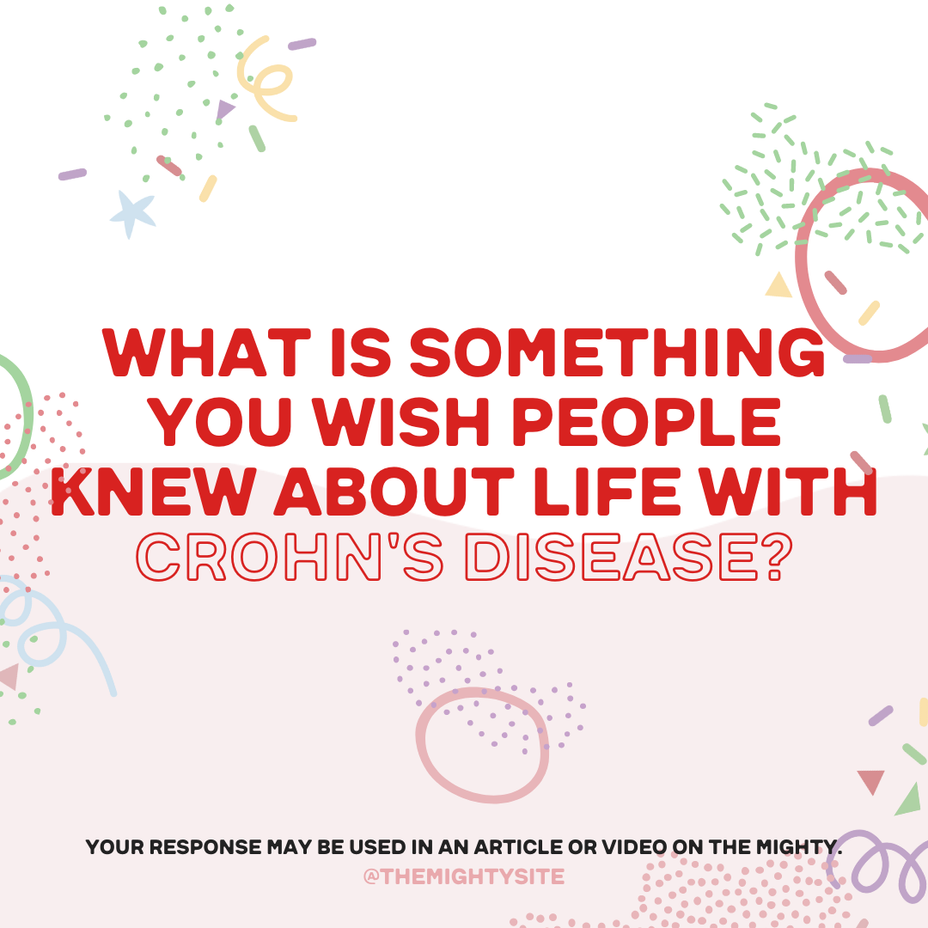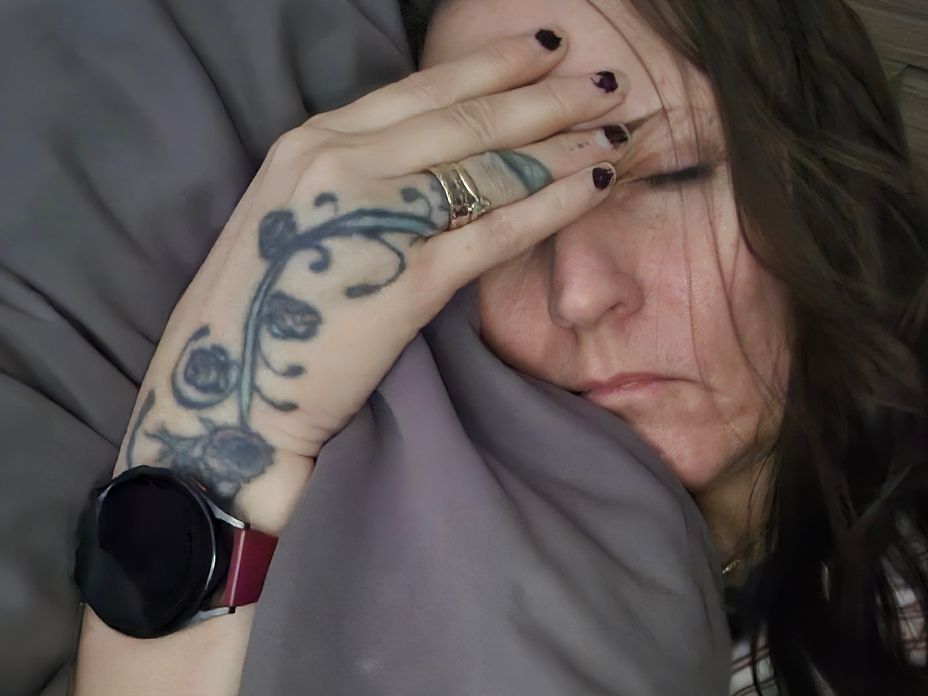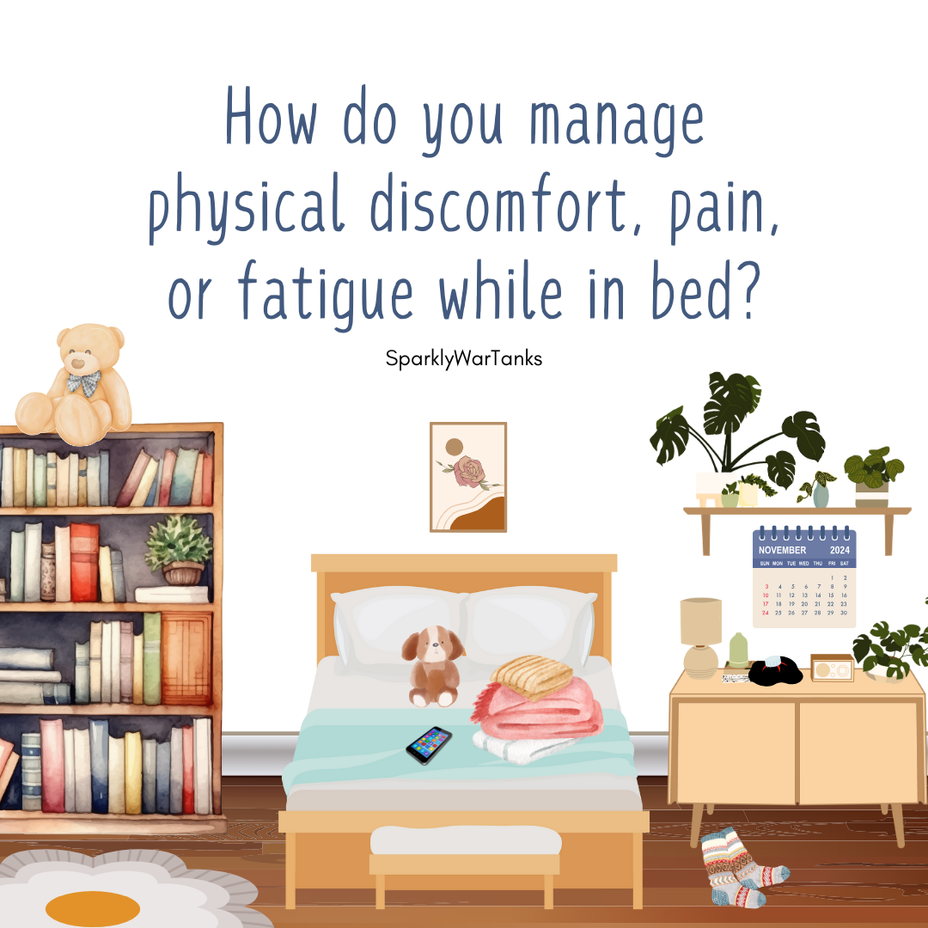What is something you wish people knew about living with Crohn's?
What is something you wish people knew about living with Crohn's?
Your response may be used in an article or video on The Mighty.
The Mighty is a safe, supportive community for people living with health challenges and the people who care for them.

What is something you wish people knew about living with Crohn's?
Your response may be used in an article or video on The Mighty.
The Mighty is a safe, supportive community for people living with disabilities and the people who care for them.
I slept till after 11am and when I woke up I had a really bad migraine. I took my meds at about 1130am and then I got sick. (Not throwing up sick)
Now my whole body is hurting. The migraine got worse. I took 3 hydroxyzine and 2 tramadol and an eletriptan. I just wanna curl up and cry.
#InflammatoryBowelDiseaseIBD #Migraine

#Migraine i just want one day that there isn't something wrong with me...
#BipolarDepression #MentalHealth #Endometriosis #Anxiety #InflammatoryBowelDiseaseIBD #Perimenopause
As many of you know, I have Crohn’s disease / IBD being diagnosed at the age of 14. I’m 19 currently.
Throughout years it has been an up and down cycle of trouble but I thought the last few years were finally getting stable and not severe, being in remission.
However, there is unfortunately something causing a spike in symptoms that can only most likely fit with Crohn’s.
My weight has dropped significantly in a rapid decline downwards over the past year causing me to have to keep buying the size down in my clothes; I know a little weight loss is normal and healthy but this is far from it and it’s gotten a lot of my loved ones concerned.
It’s also gotten me concerned admittedly.
I understand that I do a lot of physical activity, but I really shouldn’t be losing this much weight so fast.
I do eat, I eat a lot and high calorie foods but I still don’t gain anything more than 1lb which I immediately lose the next day or two, it’s just been a rapid downward trend.
I don’t understand why this is happening but I’m worried my body isn’t processing nutrients for some reason and unfortunately that’s common in Crohn’s patients like myself.
As far as stomach pain, I still get that but not very intensely. The main concern is the weight loss that isn’t responsive to food.
I know some people can end up with a feeding tube and I really don’t want that.

So I'm no longer in bed, I'm now stuck on couch 😂 my partner carried me to the couch this morning, so I could still talk to him while he was working from home.
I've taken my painkillers and it's time for a nap so he's going out to get some shopping and something to try and cheer me up a bit. (I've asked him to keep a look out for a new body, he says he'll have a look, might be some Xmas deals on 🤣)
Had a terrible night, bad pain, toilet trips and really bad nightmares, why does it all happen at once? I'm still feeling rubbish and mental health is really taking a hit, but I am so lucky to have him, I honestly don't know what I'd do without him. One day at a time. #Depression #MentalHealth #CrohnsDisease #ChronicPain #ChronicIllness #InflammatoryBowelDiseaseIBD #PTSD
Does anyone have recipes for me. I have a new Ileostomy w colectomy recipes pls🥘🍔🍳🌮🍝im so hungry # ##Ostomy
#MultipleHealthChallenges
#InflammatoryBowelDiseaseIBD #CrohnsDisease #Recipes
#nutrition

There can be a range of reasons why we may feel physical discomfort, pain, and fatigue while spending our days in bed—from health symptoms and muscle tension to stiffness, even stress. Finding relief and some level of comfort can be a constant challenge, but it’s also essential for maintaining a sense of balance.
For some, it may involve using supportive pillows or cushions to adjust their body alignment and alleviate pressure points. Others may find relief through gentle stretches or movement, when possible, or by using heating pads or cold compresses to soothe sore muscles. Breathing exercises or practicing regular hobbies can also help reduce stress and ease the mind, which in turn can ease physical discomfort.
Sometimes, it’s about creating a comfortable environment—adjusting room temperature or dimming lights to promote relaxation. And for many, reaching out to loved ones or healthcare providers for advice or support can provide both physical and emotional comfort.
What helps you manage physical discomfort, pain, or fatigue while you’re in bed?
#ChronicIllness #Disability #ChronicPain #Pain #BackPain #Spoonie #ChronicFatigue #Fibromyalgia #Neuropathy #MyalgicEncephalomyelitis
#Lupus #Cancers #Gastroparesis #MultipleSclerosis #RheumatoidArthritis #InflammatoryBowelDiseaseIBD #ChronicEpsteinBarrVirus #MentalHealth #ChronicDepression #Anxiety #PanicAttacks #InvisibleIllness
#alwaysinbed